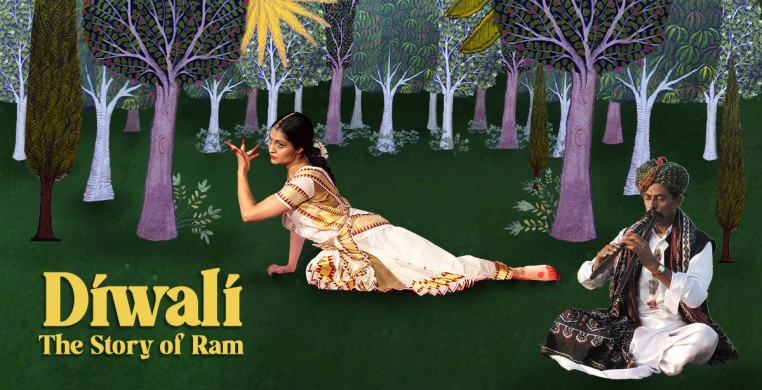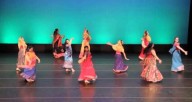In celebration of the Indian holiday of Diwali, Mandala South Asian Performing Arts, which connects audiences and students with the vibrancy, flavors, and colors of the performing arts traditions of South Asia, presents a family-friendly performance program combining dance, music, and the 17th century art of Mewar, a region in India. Diwali: The Story of Ram takes place October 8 at 7.30 p.m. at the Harris Theater for Music and Dance, 205 E. Randolph, Chicago.
Celebrating the 75th anniversary of Indian independence, this spectacle represents Mandala’s interpretation of the ancient epic Ramayana, a classic tale that spans across cultures, producing a multidimensional performance work that combines contemporary culture and mythology. The tale of Ram, his beloved wife Sita, and his brother Lakshman exiled in the forest—at odds with the brilliant king Ravana—weaves together the multiculturism of South Asia.
Diwali: The Story of Ram features the Mandala Ensemble of dancers, joined by world-renowned Manganiyar musicians, who perform with traditional string and percussion instruments. In a new element this year, the performance includes a digitally animated backdrop of paintings by artists commissioned by the King of Udaipur (historically known as Mewar) to illustrate the books of Ramayana. Sahib Din was a distinguished miniature artist whose work essentially standardized the Mewar school of painting.
Diwali, the Festival of Lights, is India’s most important holiday of the year, celebrated by people of many faiths. The festival gets its name from the row (avali) of clay lamps (deepa) that Indians light outside their homes to symbolize the inner light that protects from spiritual darkness. Though the holiday is celebrated differently in different parts of the world, the common theme is the victory of good over evil.
Mandala presents Diwali: The Story of Ram
Saturday, October 8 at 7:30 pm at
the Harris Theater for Music and Dance, 205 E. Randolph, Chicago.
PROMO CODE: diwali30 (for a 30% discount)
Tickets are $15–150
All programming is subject to change



